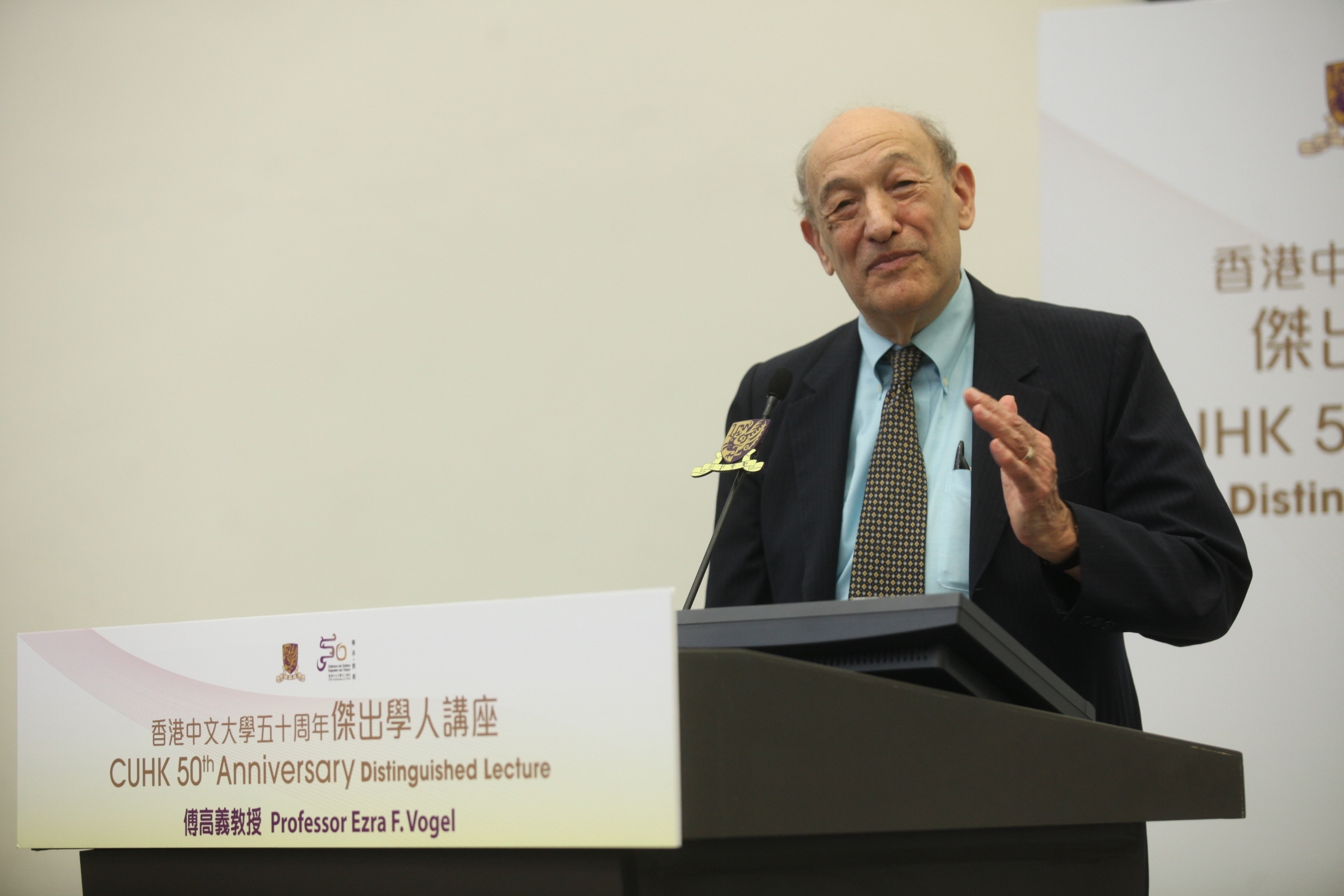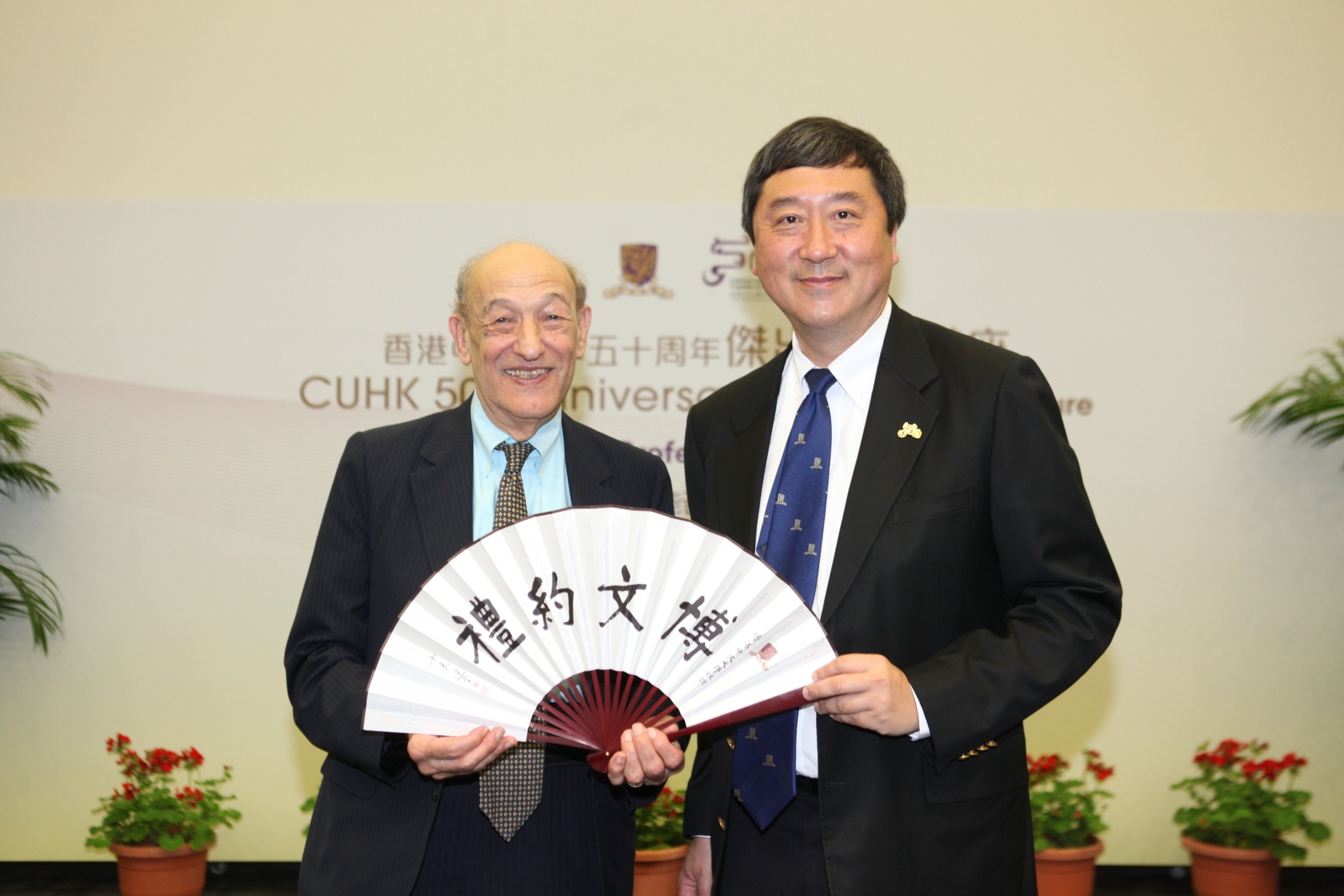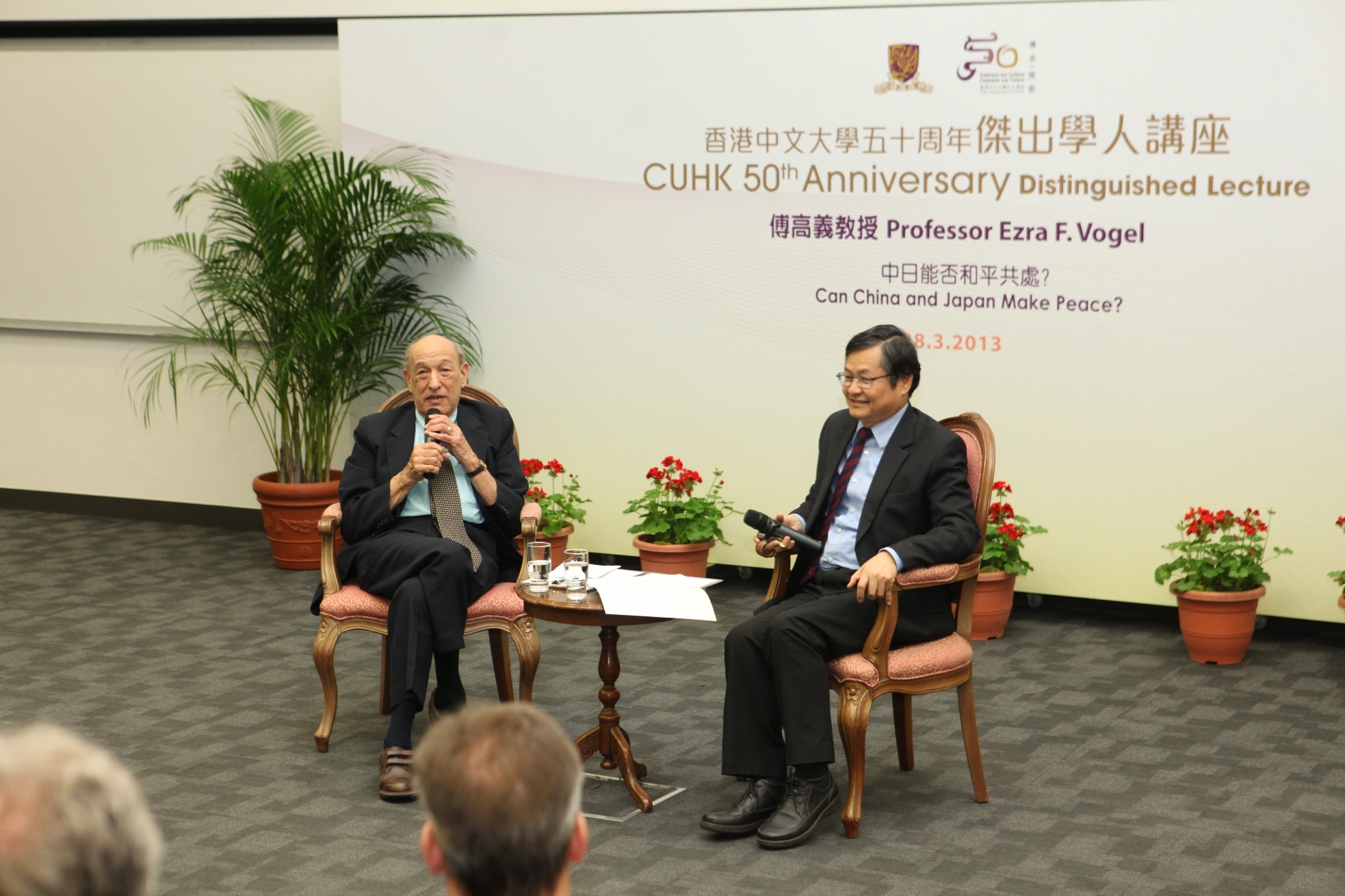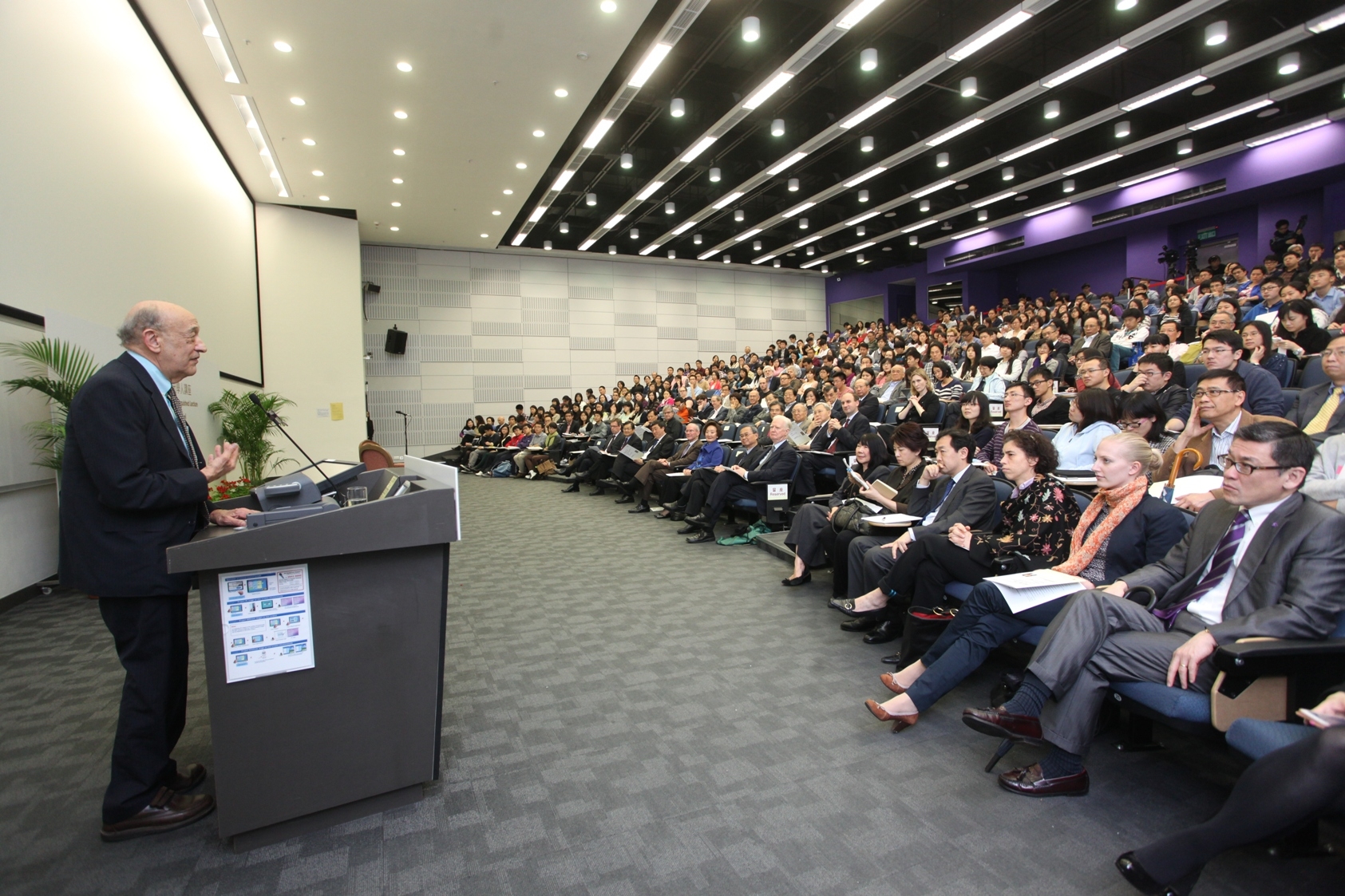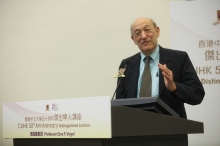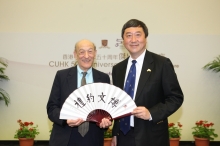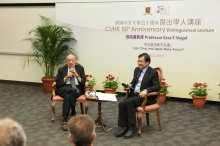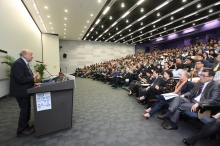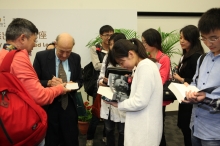CUHK
News Centre
CUHK 50th Anniversary Distinguished LectureWorld Authority in Contemporary China Studies Prof. Ezra Vogel Speaks on Sino-Japanese Relations
The Chinese University of Hong Kong (CUHK) is privileged to have invited Prof. Ezra F. Vogel, Henry Ford II Professor of the Social Sciences Emeritus at HarvardUniversity, as a guest speaker for the University’s 50th Anniversary Distinguished Lecture. Professor Vogel presented a lecture on ‘Can China and Japan Make Peace?’ today (28 March) on campus. The lecture attracted an audience of around 500, including academics, students, alumni, members of the public, as well as foreign consuls. In the lecture, Professor Vogel talked about the ups and downs of Sino-Japanese relations, as well as possible measures to improve the relations.
Prof. Ezra F. Vogel is a renowned sociologist and scholar in East Asian Studies. He received his PhD at Harvard in 1958. In 1960–1961 he was assistant professor at Yale University and from 1961 to 1964 a post-doctoral fellow at Harvard, studying Chinese language and history. He remained at Harvard, becoming lecturer in 1964 and, in 1967, professor. He retired from teaching in 2000. After retirement he worked on a book, Deng Xiaoping and the Transformation of China, completed in 2011. The book has been regarded as the most authoritative biography and account of Deng Xiaoping and his era, and has earned him the 2012 Lionel Gelber Prize and the honour of Outstanding Contributor to China Studies at the Fifth World Forum on China Studies in March 2013.
Professor Vogel was Director (1972–1977) of Harvard’s East Asian Research Center and Chairman of the Council for East Asian Studies (1977–1980). He was Director of the Program on US-Japan Relations at the Center for International Affairs (1980–1987) and, since 1987, Honorary Director. He was Chairman of the undergraduate concentration in East Asian Studies from its inception in 1972 until 1991. He was Director of the Fairbank Center (1995–1999) and the first Director of the Asia Center (1997–1999). He was Chairman of the Harvard Committee to Welcome President Jiang Zemin (1998). He taught courses on Japanese and Chinese societies and for many years a Core Curriculum course— Industrial East Asia.
Drawing on his original field work in Japan, Professor Vogel wrote Japan’s New Middle Class (1963). A book based on several years of interviewing and reading materials from China, Canton Under Communism (1969), won the Harvard University Press faculty book of the year award. The Japanese edition of his book Japan as Number One: Lessons for America (1979) is the all-time best-seller in Japan of non-fiction by a Western author. In Comeback (1988), he suggested things America might do to respond to the Japanese challenge. He spent eight months in 1987, at the invitation of the Guangdong Provincial Government, studying the progress of the province since it took the lead in economic reform in 1978. The results are reported in One Step Ahead in China: Guangdong Under Reform (1989). His Reischauer Lectures were published in The Four Little Dragons: The Spread of Industrialization in East Asia (1991). He updated his views on Japan in: Is Japan Still Number One? (2000). He has visited East Asia at least once a year since 1958 and has spent a total of over six years in Asia. He lectures often in Asia, in Chinese and Japanese. Since 2000 he has organized a series of conferences between Chinese, Japanese, and Western scholars to work together to examine the China War from 1937–1945.
Professor Vogel has received ten honorary degrees. He received The Japan Foundation Prize in 1996 and the Japan Society Prize in 1998. He was elected to the American Academy of Arts and Sciences. In 2008, he received the Harvard Graduate School Centennial Medal for contribution to society.
From 1993 to 1995, Professor Vogel took a two-year leave of absence from Harvard to serve as the National Intelligence Officer for East Asia at the National Intelligence Council in Washington. He directed the American Assembly on China in November 1996 (Vogel, ed., Living With China) and the Joint Chinese-American Assembly between China and the United States in 1998. He served as Co-director of the Asia Foundation Task Force on East Asian Policy Recommendations for the New Administration (2001). He chairs the advisory board of the Universities Service Centre for China Studies of CUHK, which houses one of the world’s most complete collections of materials for the study of contemporary China.
For more photos, please visit:
https://www.cpr.cuhk.edu.hk/en/events_recap_detail.php?1=1&id=116&s=
Prof. Joseph Sung, CUHK Vice-Chancellor presents a CUHK 50th anniversary souvenir to Prof. Ezra Vogel.


